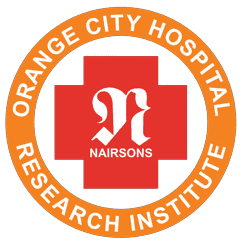How to take transaction online for ecommerce business Any legal terms (We have a GST registered company)

Let’s understand RT PCR Test for Covid 19 infection
By: Dr Rajesh Atal
MBBS, MD (Medicine)
General Medicine and Critical Care
Practising in Nagpur since 2000 as Physician
RT PCR test has become one of the most talked of test in the last one year of Covid Pandemic. In fact, before one year even many people in the medical fraternity were not aware of the intricacies of these tests. It was mainly restricted to Virologists and the scientists working in immunology.
But now RT PCR has not only become the talk of the town but talk of the world for both good and bad reasons and has become one of the most common tests performed to diagnose Covid 19 infection. It has substantially increased the efficacy to diagnose Covid 19 infection.
But there are lots of myths about RT PCR test like
- A person with Negative RT PCR definitely as no Covid infection.
- A person with Positive RT PCR is always suffering from Covid infection.
- Once negative, RT PCR is always negative.
- Laboratories are giving erroneous reports (both positive and negative reports) and misguiding the society.
- We need to repeat the test to confirm that we are disease-free.
- RT PCR positive person is always infectious.
- Cost of the test is very high in India.
So let’s understand what is RT PCR test and also its pros and cones:
In technical terms, it is a real-time reverse transcription-polymerase chain reaction test for the qualitative detection of nucleic acid from SARS-CoV-2 in upper and lower respiratory specimens (such as nasopharyngeal or oropharyngeal swabs). To put it simply this test just amplifies and detects the presence of parts of RNA of the virus which confirms the diagnosis of Covid 19 infection.
Overall, RT-PCR testing is the mainstay in diagnosing COVID-19, due to its sensitivity (high chances of getting true positive report), specificity (Positive covid report is specific for Covid Virus only), and feasibility (ease and cost-effectiveness) as compared to other methods of diagnosis like viral culture
However, as is true with any test even RT PCR also has got its own fallacies. Over the 4 days between actual infection (day 1) to the typical time of symptom onset (day 5), the probability of a getting negative result in an infected person decreased from almost 100% on day 1 to 67% on day 4. So we may get a negative report even in an infected patient if the test is done too early. Even On the day of symptom onset (day 5), the chances of getting a negative report is 38%. On day 8 the chances of getting negative report decreased to 20%. So the best time to do the test is at least 3 days after the onset of symptoms so that the chances of getting false negative report will be significantly decreased.
All this may explain that patient can get both positive and negative reports by doing the same test in different labs at different times and thus creating confusion and misunderstanding about the reporting by different laboratories. Moreover, the results will also depend on how correctly the swab is taken by health care personal.
So we need to understand the dynamics of the virus and also the limitations of the test before interpreting the test report. We may have to repeat the test multiple times to get desired results in a patient with high suspicion of Covid 19 infection. So negative RT PCR need not always mean that person is not infected with Covid 19.
RT PCR can detect particles of RNA, which can remain positive for a long time – may be up to a month or two after infection. So there is no point in repeating the test to confirm that you are disease-free. Even in clinically cured patients, we may have a positive result for a long duration. What is important to understand is that clinically cured patient or asymptomatic positive patient is usually not going to spread infection after 14 days of infection. So the person may be positive but will not spread infection after 14 days. Hence repeat testing should be strongly discouraged in people who were previously RT PCR positive. This will also help to reduce the burden on the health care sector.
Last but not the least chances of laboratories giving erroneous reports are very less as they being actively monitored by local authorities and the ICMR at the national level. As far as the cost of RT PCR test is concerned in India, it is one of the lowest in the world and is being regulated by governing authorities. In fact, in United States of America the cost of one RT PCR test is almost 375 dollars which is equivalent to Rs 30000/- in India.
The Indian laboratories are truly doing a splendid job and doing their share of duty for the society in these difficult times of Covid Pandemic.
